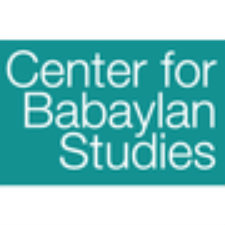
 As the Philippines keeps up with progress, other aspects of its culture struggle and take a backseat. One such aspect is the knowledge systems provided by indigenous groups within the country. With the surge of foreign influences, it is very easy for Filipinos to lose sight of that which bonds them to their ancestral roots, as well as their link to the environment.
As the Philippines keeps up with progress, other aspects of its culture struggle and take a backseat. One such aspect is the knowledge systems provided by indigenous groups within the country. With the surge of foreign influences, it is very easy for Filipinos to lose sight of that which bonds them to their ancestral roots, as well as their link to the environment.
Fortunately, the Center for Babaylan Studies (CfBS), a non-profit organization, aims to restore the connection or at least, promote indigenous wisdom in today’s modern age.
The Babaylan-Inspired Way
The Babaylan is a woman (sometimes, a man) in Philippine indigenous communities that possesses the gift to communicate with the spirit world, as well as other abilities like healing, foretelling, and insight. The babaylan has many names in different Filipino tribes, such as Mombaki, Dawac, Balyan or Balian, Katalonan, Ma-Aram, and many others. In terms of non-Filipino culture, the Babaylan can be compared to a Shaman or Priestess.
 Not only is the Babaylan a healer or spiritualist, she is also a philosopher and wisdom-keeper, and is vastly knowledgeable about nature. These representatives helped connect ancestors to the environment and even reminds them of traditions and values that are essential to their daily lives. This indigenous wisdom can also be applied to contemporary times – especially views on sustainable living and Filipino values like Pakikipagkapwa (Deep Interconnectivity), Kagandahang Loob (Wholeness of Being), and Pakikiramdam (Deep Empathy).
Not only is the Babaylan a healer or spiritualist, she is also a philosopher and wisdom-keeper, and is vastly knowledgeable about nature. These representatives helped connect ancestors to the environment and even reminds them of traditions and values that are essential to their daily lives. This indigenous wisdom can also be applied to contemporary times – especially views on sustainable living and Filipino values like Pakikipagkapwa (Deep Interconnectivity), Kagandahang Loob (Wholeness of Being), and Pakikiramdam (Deep Empathy).
The members of the CfBS refer to themselves as “Babaylan-inspired” out of respect for the primary spiritual leaders in the Philippines who are land-based in their indigenous groups. Also functioning as culture-bearers, they seek to promote and cultivate this uniquely Filipino way of life in this age of globalization.
The Center provides materials and resources that can help educate Filipinos on the spiritual, social, and historical aspects of Filipino indigenous culture. The group also encourages interested Pinoys to join learning groups and hold conferences, workshops, retreat, concerts, and other events that promote deep appreciation for Filipino indigenous spirituality. Collaborations are also established with other groups who share their vision.
The group is a growing network and has supporters not limited to the Philippines. Many members can also be found in the United States, Canada, and Europe.
Reconnecting with Filipino Roots in a Modern World
It is not impossible to live through this day and age, and at the same time, carry fragments of traditions and beliefs. Spirituality and wisdom are universal and do not contradict with present belief systems and religions. According to the Center, the first step is to believe that these memories are crucial and should not be trivialized or dismissed, like in the colonial era, where the Babaylan tradition was suppressed.
Once you have taken this to heart, it is encouraged that you take the time to learn more about the practices and customs of the Babaylan leaders and Filipino ancestors. The Center for Babaylan Studies will be happy to guide you through this process of rediscovery. You may contact the Center for Babaylan Studies through their: Website at: http://www.babaylan.net/ Facebook: https://www.facebook.com/groups/CenterforBabaylanStudies/ Email:
- Project Director: Leny Strobel : lenystrobel@sbcglobal.net; 707-494-4967
- Co-Director: Venus Herbito: venus@babaylan.net
- Co-Director: Mila Coger: milaeck@yahoo.com

The CFBS will host the much awaited, “Mabungang Panaghinabi: Fruitful Conversations on Bridging Indigenous and Christian Traditions of Spirituality.” The gathering, first in a series of discussions on how indigenous spirituality may be found in all religions, will be held from May 22-24, in Glouster, Ohio, at Scenic Burr Oak Lodge, which is part of a nature reserve in Ohio. Also featured in the event are topics on “kapwa” or the Filipino value of seeing the self in the other, a shared identity; and “loob” or the deeper sense of one’s human and divine qualities. Kapwa and loob are essential aspects of the Filipino personhood which serve as guide to the Filipino soul. for symposium details, please go to the babaylan.net website and register early. Attendance is limited to only 40 participants.
